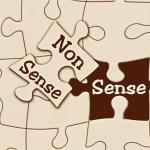Many scientists complain about widespread science denial—then declare with a straight face that men can get pregnant and sex is a spectrum. This hypocrisy should horrify everybody.
Policy & Ethics
Last week, Yair Rosenberg wrote in the Atlantic about the upcoming highest of holidays for those of the Jewish faith, Yom Kippur.
Many naively argue that the misguided push to mix the two genders in sport is that there are no significant differences once the transgender male lowers their testosterone levels.
Last week the Tennessee Department of Health reported that overdose deaths from synthetic opioids classified as nitazenes have increase
Many ethicists argue that the injured child hasn’t suffered a recognized harm. Without the negligence, they say the child wouldn’t have been born.
Background
To determine whether a chemical poses a cancer risk to the population, two issues need to be assessed:
After the U.S.












